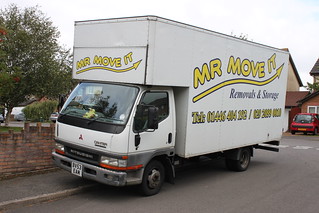How to Move Into a Rental Home
Drew’s Law: Moving is more complicated than you think, even when you take this rule into account.
 Moving into a new home is a heck of a project, and a lot of people underestimate it pretty significantly. Let’s talk about what exactly you need to move into a new rental home.
Moving into a new home is a heck of a project, and a lot of people underestimate it pretty significantly. Let’s talk about what exactly you need to move into a new rental home.
Money Matters
The first thing to grasp about moving is that it costs money. There are plenty of upfront costs and plenty of ongoing costs, and you have to be able to afford each. The monthly costs are fairly predictable — they’re probably very similar to the kinds of bills you have each month today, adjusted to account for your new rent and utilities. The upfront costs, however, catch a lot of people off guard. You’re going to face:
- Rental application fees,
- Security deposits,
- Pet deposits (if relevant),
- Utility hookup fees,
- And of course the actual cost of moving, in gas, time, and possibly truck rental & moving supplies (boxes, packing wrap, etc.).
These are each relatively small items, but they can add up fast. Then you have to remember that those monthly costs for the new place kick in right away, leaving you holding bills for electricity, phone, Internet, TV, water/sewer/garbage/recycling, and the one thing everyone seems to forget about, insurance. Speaking of which…
Renter’s Insurance is Crucial
State Farm released a study in 2012 that showed that the average renter owns about $20k of personal belongings that wouldn’t be covered by a landlord’s insurance policies. The National Association of Insurance Commissioners, meanwhile, says that the average renter’s insurance policy costs between $15 and $30 a month.
If you go with the $30 figure, this means that you can insure the average renter’s belongings for more than 600 months (50 years!) for the same cost that it would take to buy back those same belongings. That makes renter’s insurance one of the best values per dollar of premium among all of the forms of insurance. Even if your landlord doesn’t demand you have renter’s insurance (many do!), having it should be considered mandatory if you’re going to be renting a home. Your landlord’s insurance won’t cover your belongings unless your landlord himself is responsible for their destruction. That doesn’t include:
- Fire/Smoke damage,
- Weather,
- Gas leaks/explosions,
- Water damage,
- Vandalism, robbery, or identity theft,
- Or liability from having someone hurt themselves on your property.
Renters insurance covers all that and more — so get some!
Before the Move Itself
Before you can move into a home, you need to apply for a rental, which means filling out an application, usually paying an application fee, and undergoing the tenant screening process — basically a thorough credit and background check. If and when you pass the screening process, you’ll have to pay the various other deposits and fees, and you’ll perform a move-in inspection. That means going through the rental room by room and writing down (and taking pictures of) everything that isn’t perfect. You can’t skip this, because if you move in and there’s something wrong, you will get charged for fixing it when you move out. Don’t get pinged for something that’s not your fault — do your move-in inspection thoroughly and carefully!
At the same time, you want to make sure that your utilities get hooked up correctly. That’s up to you; you have to call each company (usually one for electricity, gas, one-to-three for Internet, phone, and TV, and then the city for your water, sewer, garbage, and recycling).
The Actual Move
The ideal move is broken into five parts:
- Sell, donate, or give away anything you don’t need.
- Take anything you can’t get rid of but won’t use at least monthly into a storage unit.
- Organize everything that’s left over into boxes that you can lift without straining yourself and that will stack on a dolly.
- Get it onto a truck, and drive the truck to your new place.
- Unload the truck into your new place. Be happy.
After you’ve finished moving, hide a couple of hundred extra dollars from yourself — there seems to be a mysterious tendency for things you were positive you had to go missing unexpectedly, and there’s a good chance that you’ll realize a need you never knew you had. Manage all that, and you’ve successfully moved — congratulations!